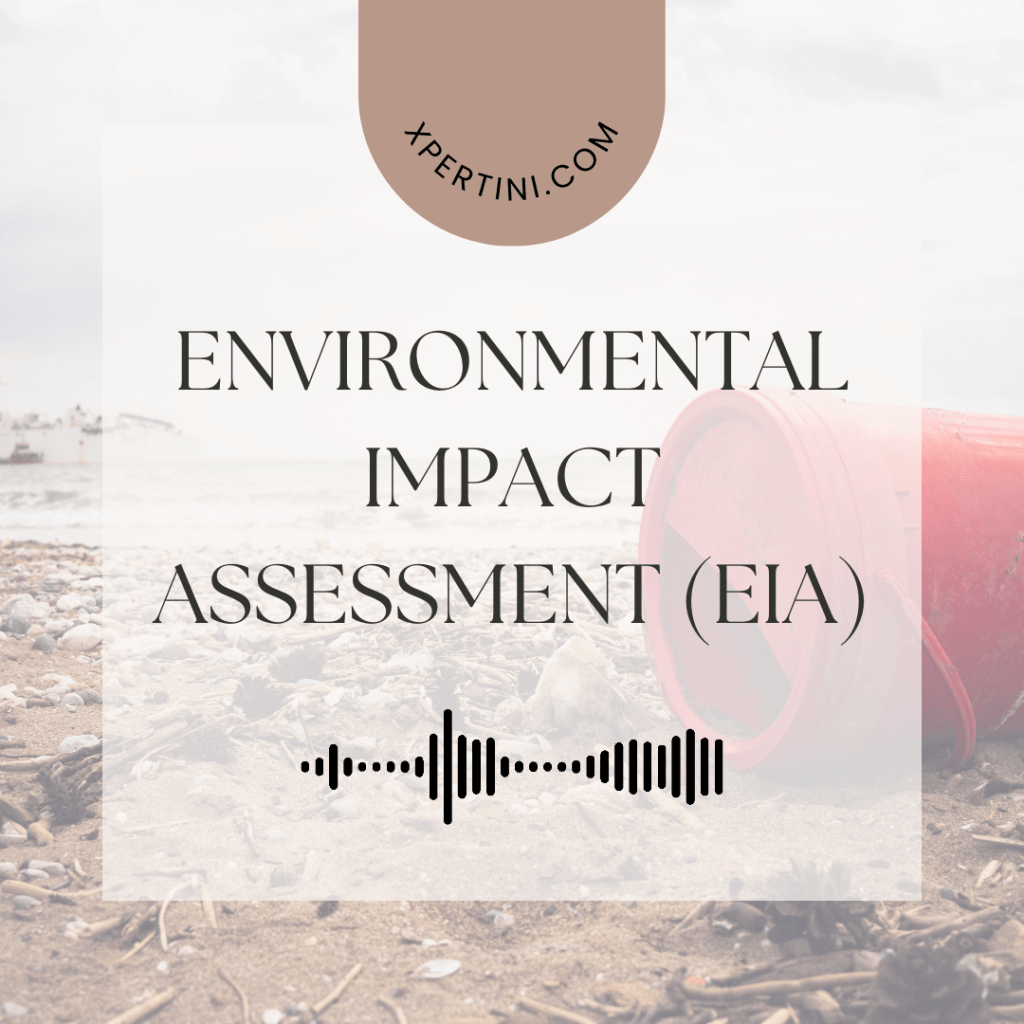Environmental Impact Assessment (EIA)
Course Summary
In this comprehensive course on Environmental Impact Assessment (EIA), participants are immersed in a structured exploration of the critical facets shaping this vital field. The course spans a spectrum of topics, commencing with an insightful foray into the fundamental principles of EIA. Participants delve into the historical evolution of EIA, uncovering its pivotal role in environmental stewardship.
The journey progresses seamlessly into an examination of systematic approaches and methodologies employed in EIA studies. Participants gain an in-depth understanding of the processes involved in data collection and analysis, equipping them with the necessary skills for rigorous assessments. The course further navigates the complex landscape of legal and regulatory frameworks governing EIA, elucidating compliance requirements essential for professionals in the field.
Stakeholder engagement takes center stage, emphasizing the significance of involving various parties in the EIA process. Effective communication strategies are revealed, ensuring that participants grasp the tools for fostering collaboration and consensus-building. The exploration of diverse assessment tools and techniques, coupled with practical applications and case studies, provides a robust foundation for evaluating environmental impacts in real-world scenarios.
International standards and best practices are meticulously dissected, fostering a global perspective on EIA. Participants gain an understanding of the comparative analysis of international frameworks, preparing them for the challenges of a connected world. The course then delves into statistical methods applied in EIA studies, revealing the interpretation and presenting environmental data for informed decision-making.
The penultimate chapter focuses on the art of report preparation, guiding participants through the components of a comprehensive EIA report and furnishing them with guidelines for effective report writing. The course culminates in an exploration of diverse career paths within EIA, offering insights into professional development and networking opportunities.
Throughout this illuminating journey, participants are empowered with a holistic perspective on EIA, from its historical foundations to contemporary global standards. The course not only imparts knowledge but also hones practical skills, ensuring that participants emerge well-equipped for impactful contributions to environmental sustainability.
Course Overview
This course is designed to provide a comprehensive understanding of Environmental Impact Assessment (EIA) in the context of environmental studies and forestry. Participants will gain valuable insights into the significance of EIA, its methodologies, and applications. The course emphasizes practical knowledge to prepare individuals for careers in environmental management.
Course Objectives
- Understand the fundamental principles and concepts of Environmental Impact Assessment.
- Develop skills to assess and mitigate environmental impacts of various projects.
- Acquire knowledge of legal and regulatory frameworks related to EIA.
- Gain proficiency in conducting environmental impact studies using different assessment tools.
- Learn to analyze and interpret environmental data for decision-making.
- Explore the historical context and evolution of EIA.
- Understand the importance of stakeholder engagement in the EIA process.
- Familiarize with international standards and best practices in EIA.
- Gain practical experience in preparing EIA reports for diverse projects.
- Explore career opportunities and pathways in the field of Environmental Impact Assessment.
Course Outcomes
Identify and define key environmental concepts and their relevance to EIA.
Apply systematic approaches to assess and predict environmental impacts.
Analyze the legal and regulatory aspects governing EIA processes.
Evaluate the effectiveness of different environmental assessment tools.
Demonstrate effective communication skills for stakeholder engagement.
Recognize historical milestones shaping the development of EIA.
Utilize international standards and guidelines in EIA practices.
Demonstrate proficiency in data analysis for environmental impact studies.
Prepare comprehensive and compliant EIA reports for diverse projects.
Explore and evaluate career opportunities in the field of EIA.
Course Audience
- Individuals aspiring to pursue a career in environmental management.
- Environmental scientists and researchers seeking to enhance their EIA knowledge.
- Forestry professionals and land-use planners.
- Regulatory and compliance officers involved in environmental assessment.

